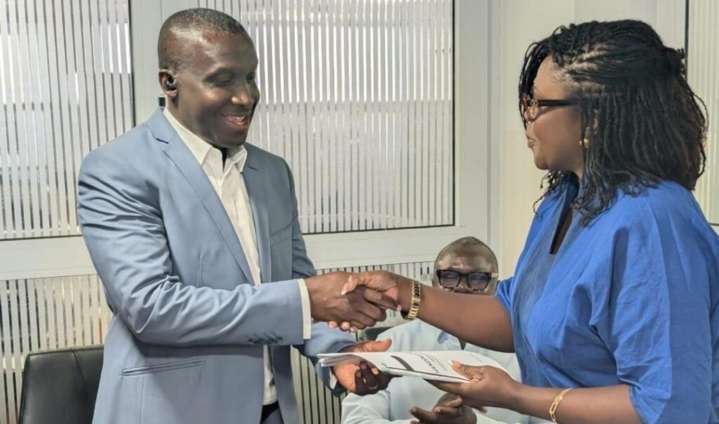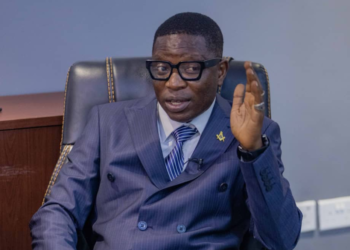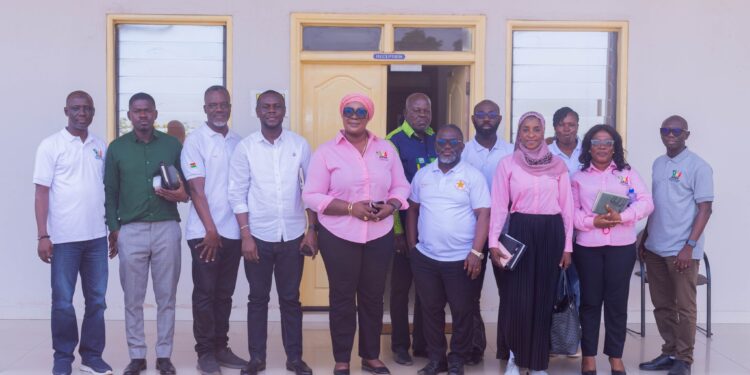Osagyefo Mawusi Oliver Barker-Vormawor, a legal practitioner and well-known activist, has questioned the motivations behind the Civil and Local Government Staff Association of Ghana’s (CLOGSAG) recent strike threat.
According to him, the group’s sudden action appears misplaced given the long-standing economic hardships affecting civil servants.
In a pointed critique, Barker-Vormawor expressed astonishment at CLOGSAG’s decision to flex its muscle over the appointment of a new head of the Births and Deaths Registry, rather than the broader economic challenges that have plagued the civil service for years.
“Eih, so CLOGSAG knows how to organize strikes, and all these years they have been this quiet? After so much economic hardship that decimated the working conditions of Civil Servants; they are telling me that it is the person appointed to head Births and Deaths Registry that was suddenly their biggest concern?”
Osagyefo Mawusi Oliver Barker-Vormawor
His remarks come in the wake of CLOGSAG’s recent warning of industrial action, citing dissatisfaction with the appointment of a new Executive Director for the Births and Deaths Registry by President John Dramani Mahama.
The move, according to CLOGSAG, is in direct response to what it perceives as political interference in the Civil Service.
In a statement dated February 13, 2025, signed by its Executive Secretary, Isaac Bampoe Addo, the association expressed strong opposition to Mr. Botchway’s appointment, labelling him a “politically exposed person” and warning that his assumption of office would be met with industrial action.
Following through on its warning, CLOGSAG directed all its members nationwide to stay at home until further notice. The Association also argued that the appointment violates the neutrality principle of the civil service, as the new appointee is perceived to have political ties.

Samuel Adom Botchway to be Reassigned
However, the newly appointed Registrar of the Births and Deaths Registry, Samuel Adom Botchway, is set to be reassigned following concerns raised by the Civil and Local Government Staff Association of Ghana (CLOGSAG) about his appointment.
The Minister of State for Government Communications, Felix Kwakye Ofosu, said the issue has been resolved and the planned strike will no longer take place.
He confirmed that Mr Botchway will be reassigned to a different role, adding that the government, led by President John Mahama, remains committed to listening to the concerns of citizens as it works to reset the country.
Barker-Vormawor’s commentary appears to cast doubt on the sincerity of the strike, questioning whether civil servants’ true priorities align with their stated grievances.
He noted that despite years of worsening working conditions, CLOGSAG had largely remained silent, only now showing urgency over an issue of leadership at a single department.
“Ah well. If this is what all Civil Servants said they wanted, who am I to judge their priorities?” he stated sardonically, implying that the strike may not reflect the broader concerns of civil servants but rather a politically motivated agenda.
He went on to highlight the historical significance of the strike threat, noting its unprecedented speed under the Fourth Republic.
“Anyway. They have done well. This is the fastest strike threat any elected president has received under the 4th Republic. Good for our democracy.”
Osagyefo Mawusi Oliver Barker-Vormawor
The activist’s remark suggests that the strike could set a new precedent for labor activism in Ghana, where organized labour groups have often been criticized for being slow to act on critical issues affecting workers.
Barker-Vormawor also hinted at a broader political manoeuvring at play, suggesting that think tanks such as the Danquah Institute, which has ties to the opposition New Patriotic Party (NPP), may soon follow suit in testing the political waters under a John Mahama-led government.
“Organized Labour has tested the pulse of JM. Danquah Institute soon to follow,” he remarked cryptically, suggesting that Mahama’s presidency will likely face immediate scrutiny and resistance from groups that were more passive under previous administrations.
READ ALSO: Ghana Pledges Reforms to Revive Upstream Petroleum Sector





















